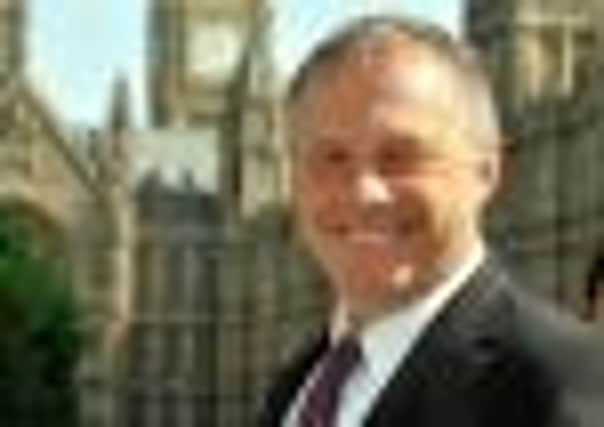Exclusive: Taxpayers spending £4bn in contracts ‘rip off’


Treasury figures obtained under the Freedom of Information Act show the region already owes more than £6bn for schemes funded via the Private Finance Initiative (PFI), a Government-backed way of using private firms to build and run public buildings which has paid for new hospitals, schools, roads and leisure facilities across Yorkshire over the past 15 years.
Last week a hard-hitting report by the Treasury select committee concluded PFI deals offer “poor value for money” and can typically cost up to 40 per cent more than if they been funded with normal public borrowing. Successive Governments now stand accused of “cooking the books” by using PFI to keep major new infrastructure projects off their balance sheet, so artificially reducing official debt figures – all the time knowing it would ultimately cost taxpayers billions of pounds more.
Advertisement
Hide AdAdvertisement
Hide AdBut despite widespread anger about the use of PFI, local authorities across Yorkshire have been given the green light by Government to push ahead with more huge PFI deals. Ten new schemes are due to be signed off in the region during the current financial year, at a cost of well over £4bn.
These include the two largest PFI contracts Yorkshire has ever seen – the £2bn renovation and maintenance of Sheffield’s entire road network, and the construction of a vast waste incinerator for North Yorkshire at Knaresborough.
“PFI is an accounting trick,” said Bassetlaw Labour MP John Mann, who sits on the Treasury Committee. “We have demonstrated with this report that it is a false economy.”
The report makes clear that PFI deals raise the cost of public works schemes unnecessarily, because private companies are forced to pay far higher interest rates than the Government would have had it raised the finance itself.
Advertisement
Hide AdAdvertisement
Hide AdBut they remain attractive because the public sector pays for each scheme over a long period of time via a fixed contract, rather than racking up large amounts of initial debt meaning it stays off official balance sheets and gives the appearance no extra liability has been taken on.
Shipley MP Philip Davies, who has signed a pledge demanding PFI firms making massive profits hand some money back to the Government, said: “PFI has been a complete catastrophe. Taxpayers have been massively ripped off – it has been an absolute scandal.
“This was basically a ruse developed when John Major was Prime Minister, and accelerated when Gordon Brown was Chancellor because it kept items of public spending off the day-to-day accounts of the Government.
“It was a way of masking what they were spending. Now taxpayers will have these huge liabilities for years to come.”
Advertisement
Hide AdAdvertisement
Hide AdTreasury figures show Yorkshire is currently paying for 55 PFI schemes, ranging from a street light replacement contract in Wakefield to the new cancer care unit at St James’s Hospital, Leeds.
Councils, health trusts and other local bodies are now tied into expensive fixed-priced contracts running as far as 2040.
Mr Mann said: “As well as the expense, there is a total lack of flexibility. For example, they are tying every new school into these contracts. Having a new school is great for the first five years – but 15 years in, things may well change; 25 years ago there were no computers in schools. Now they all need laptops and Wi-Fi.”
The Government insists it is doing its best to reform PFI so that it offers better value for money, but continues to sign deals off.
Advertisement
Hide AdAdvertisement
Hide AdAn aide to Chancellor George Osborne said: “We have been saying for a long time that the PFI system we inherited was completely discredited and nothing more than a ploy to keep expensive projects off the balance sheet. That’s why we’re reforming it so it is genuinely transparent and only used when it provides value for money.”